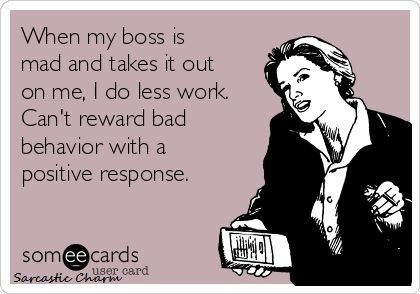Al Bernstein Interview — Extended

Did you enjoy “How to Make Difficult Conversations Easy: 7 Steps From A Clinical Psychologist“? Here are more insights from Al Bernstein:
1) How To Deal With Your Boss
You have to make sure to never put yourself in what seems like a dominant position over your boss. This will lead you toward Godzilla territory.
The solution is to ask questions versus saying anything that sounds like you’re correcting your boss or telling them what to do.
Here’s Al:
‘Please your boss’ is job one. I think you have to be really careful about not pushing yourself into a position of dominance over your boss, like saying, ‘If you’ll look at this, you’ll see, I’m right and you’re wrong,’ because that’s putting yourself up in the hierarchy. You’re much better in most situations asking a good question.
Questions are so much more powerful than statements, because you make a statement and somebody can disagree with it or get angry at it or something like that. If you ask a question, they have to stop and think. If you think your boss has made a mistake, you can say a simple thing, like, ‘If you look at these figures, I think you have misanalyzed this.’ But it’s much better to go about it in a way where you’re making yourself less dominant. You say to the boss, ‘There’s something here I just really don’t understand. This number on line 6 here, it just doesn’t make any sense to me.’ You act like you don’t understand, when you really know that your boss misunderstood it.
(Lessons on how to get what you want from hostage negotiators are here.)
2) How To Deal With Control Freak Co-Workers
Telling them to “calm down” or “take it easy” will get you nowhere. Realize they are frightened.
You need to let them know you take things as seriously as they do. Reassure them instead of telling them they’re crazy.
Here’s Al:
See somebody who is a control freak, who’s trying to protect themselves from making mistakes, as a very frightened person. So the approach should be reassurance rather than recrimination. Let them know, ‘I take this as seriously as you do. I’ve done my homework. Let’s analyze it more closely. Let’s go through it step-by-step.’ Recognizing that the task in dealing with a control freak is not to get them to get out of your face, it’s to reassure them so that they calm down enough that they’ll go and try and control somebody else.
(More on how to get people to like you, from an FBI behavior expert, here.)
3) Happiness Is “Reverse Paranoia”
In his book Dinosaur Brains: Dealing with All Those Impossible People at Work, Al quoted J.D. Salinger saying:
“I consider myself a reverse paranoiac. I am always suspecting that people might be conspiring to make me happy.”
Al followed that up by saying:
That is about as clear and concise a definition of mental health as I can imagine.
I asked him to explain. Here’s Al:
If you look at the psychological studies of healthy people, their characteristics are not what a therapist would think. As a therapist, I would like to go with Socrates and think an unexamined life is not worth living, and so the happiest and healthiest people are the people who understand themselves best … but that’s not so.
All the studies show that usually the shallower you are, the happier you are. The most normal and happy people in the world are Barbie and Ken. I think what we call mental health has a large component of unreasonable optimism to it. I think that it is healthy to look at a situation and think it’s going to turn out right.
So many studies have shown that depressed people are much more accurate in predicting what’s going to happen in various situations, interpersonal situations, and other situations, but that doesn’t make them happy. Accuracy doesn’t make us happy. Unreasonable optimism, thinking that people are conspiring to make you happy, will work much better. You will be happier.
I think we need to know that. Unfortunately, I’m still going to analyze what I’m doing in my life and how I feel and that sort of thing, but I think that if you really want to be happy, when we’re most happy, it’s usually when we get out of our head and focus on what’s going on around us … if we’re totally present in the situation, not analyzing the situation.
(More on how to happier and successful from a Harvard researcher here.)
If you haven’t already, join over 151,000 readers. Get a free weekly update via email here.
Related posts:
6 Hostage Negotiation Techniques That Will Get You What You Want
How To Get People To Like You: 7 Ways From An FBI Behavior Expert
